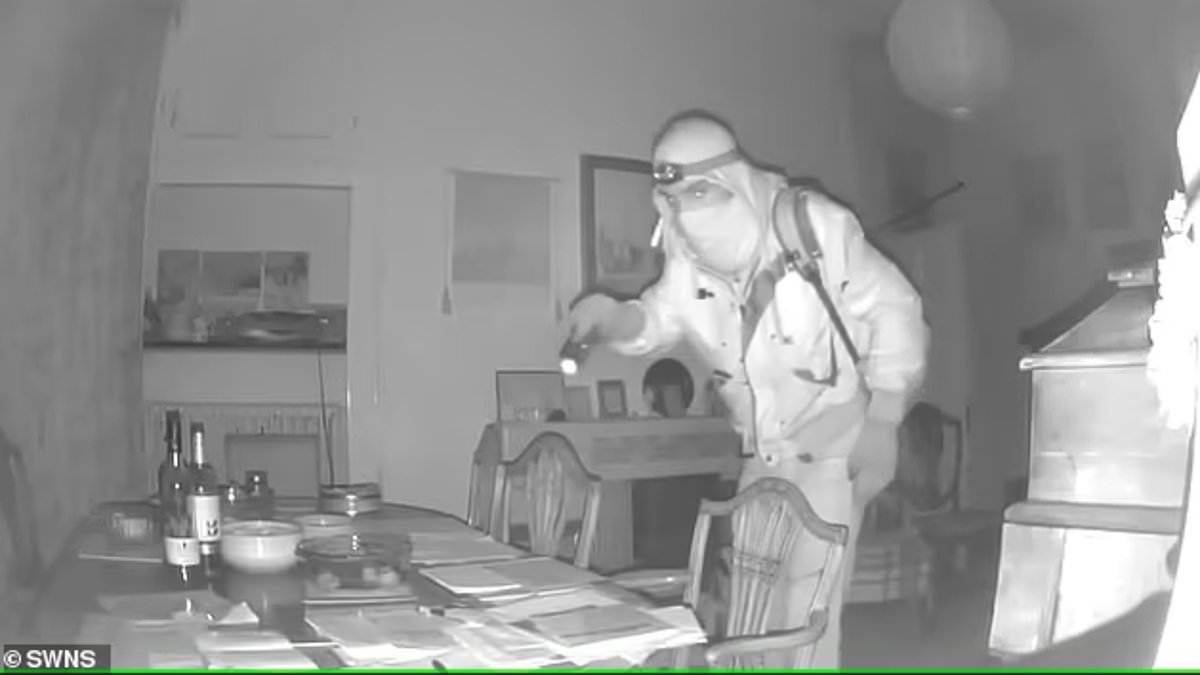Burglars and drug dealers to get given a clean record and will not have to inform employers about their past crimes under plans to cut reoffending
Burglars and drugs dealers will not have to tell future employers about their past crimes under new plans to axe the law that states offenders have to declare their convictions.
Justice Secretary Alex Chalk has said that former criminals having to confess their unspent convictions years after being released from prison can be a ‘huge barrier’ for people trying to reintegrate into society.
His department said it can be an obstacle to finding employment, accessing housing and being accepted for insurance.
Under the rule change, custodial sentences of four years or more, for crimes deemed less serious, will become ‘spent’ after a seven-year period of rehabilitation, as long as no further offence is committed.
Offenders who have committed serious sexual, violent, or terrorist offences are excluded from the changes, the Ministry of Justice (MoJ) added.
Burglars and drugs dealers will not have to tell future employers about their past crimes under new plans to axe the law that states offenders have to declare their convictions. Pictured: A burglar who was jailed for eight months
Justice Secretary Alex Chalk has said that former criminals having to confess their unspent convictions years after being released from prison can be a ‘huge barrier’ for people trying to reintegrate into society
Those applying for jobs that involve working with vulnerable people will still have to disclose their convictions through standard and enhanced Disclosure and Barring Service (DBS) checks.
Nearly 125,000 people sentenced last year will benefit from the reforms, according to the MoJ.
Conservative Cabinet minister Mr Chalk added: ‘Carrying the weight of life-long criminal records even after serving their time is a huge barrier for many offenders seeking to reintegrate into society and turn away from a life of crime.
‘These reforms will help ex-offenders get the steady income, routine and purpose they need which cuts reoffending and ensures fewer members of the public become victims of crime.’
The reforms came into force on Saturday October 28 under the Police, Crime, Sentencing and Courts Act.
The changes mean that an adult given a custodial sentence of a year or less will have to declare it for 12 months, down from two years for those handed sentences of six months or fewer.
A custodial sentence of between one and four years will need to be declared for four years and custody of more than four years for seven.
Under previous rules, custody of more than six months, and up to two-and-a-half years, had to be declared for four years, sentences of up to four years were not considered unspent for seven years and sentences of more than four years were never spent.
The new plans come as a staggering 214,076 burglaries in England and Wales – that’s 587 a day – went unsolved in the year to June 2023
The MoJ said employment can help reduce reoffending, which it said costs the taxpayer up to £18 billion each year.
It expects the changes to make it easier for convicts released from jail to find work and accommodation.
It comes after the Justice Secretary announced earlier this month that fewer ‘low-level offenders’ will be sent to prison.
They will instead be set to work performing other tasks such as cleaning up local neighbourhoods.
But rapists will still be forced to serve their full sentence in prison under the promised reforms.
The new plans come as shocking figures revealed that police failed to solve three quarters of burglaries and car thefts in the last year.
A staggering 214,076 burglaries in England and Wales – that’s 587 a day – went unsolved in the year to June 2023.
Shockingly just six per cent of break-ins resulted in a suspect being charged or summoned in court, according to analysis by the Liberal Democrats who warned of a ‘crime catastrophe’.
Data shows 76 per cent of burglary and 77 per cent of car theft cases were closed with no suspect identified, with the proportion of undetected offences up six per cent on the previous year.
Earlier this year the Home Secretary ordered police to investigate every break-in if there is reasonable evidence, with forces agreeing to attend every burgled home.
Government data shows forces are also failing to tackle car theft. Unpunished cases rose by 20 per cent, with 77 per cent of stolen car reports dropped and 107,451 cases closed without a suspect identified.
Just four per cent were summoned to court.
The Home Office said ‘since 2010 our communities are safer’, with burglary, robbery and theft down 50 per cent, violent crime down 52 per cent, and ‘more police officers in England and Wales than ever before’.
Source: Read Full Article








